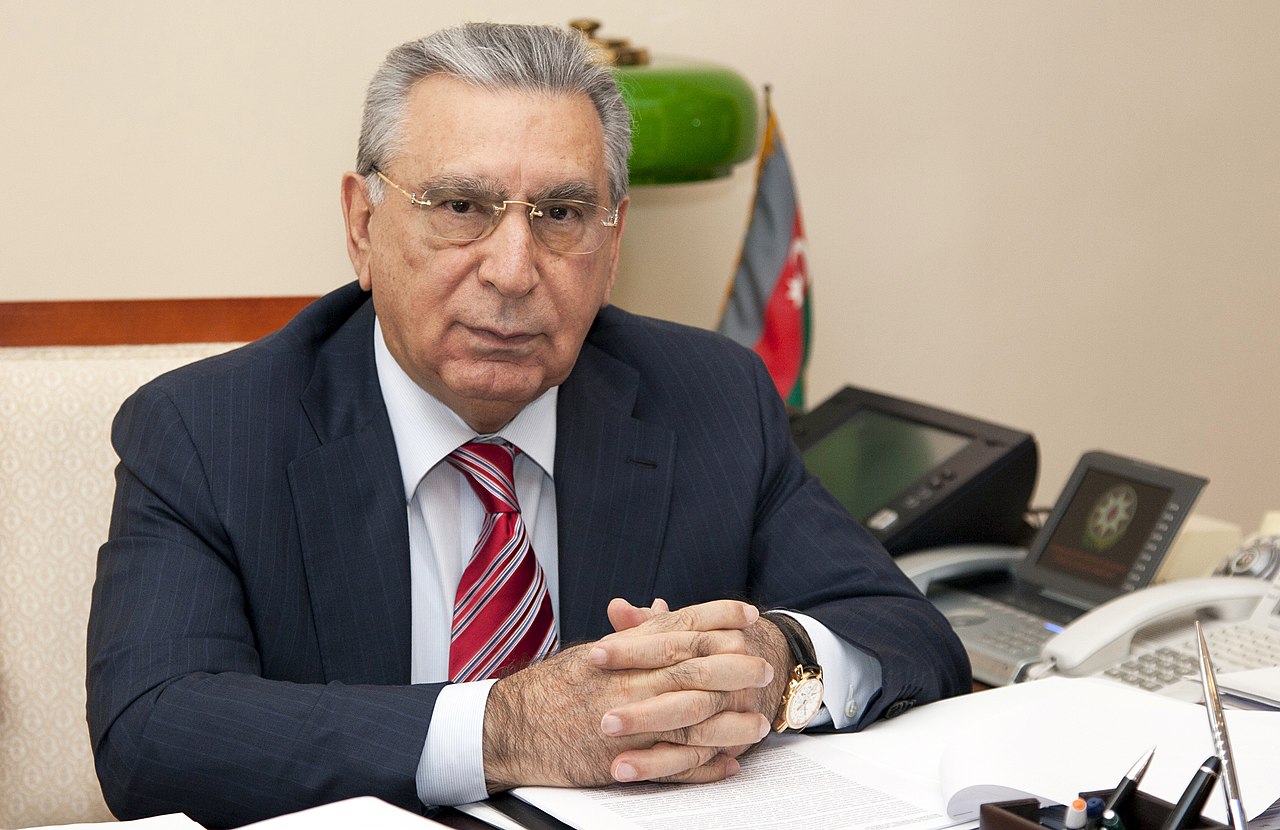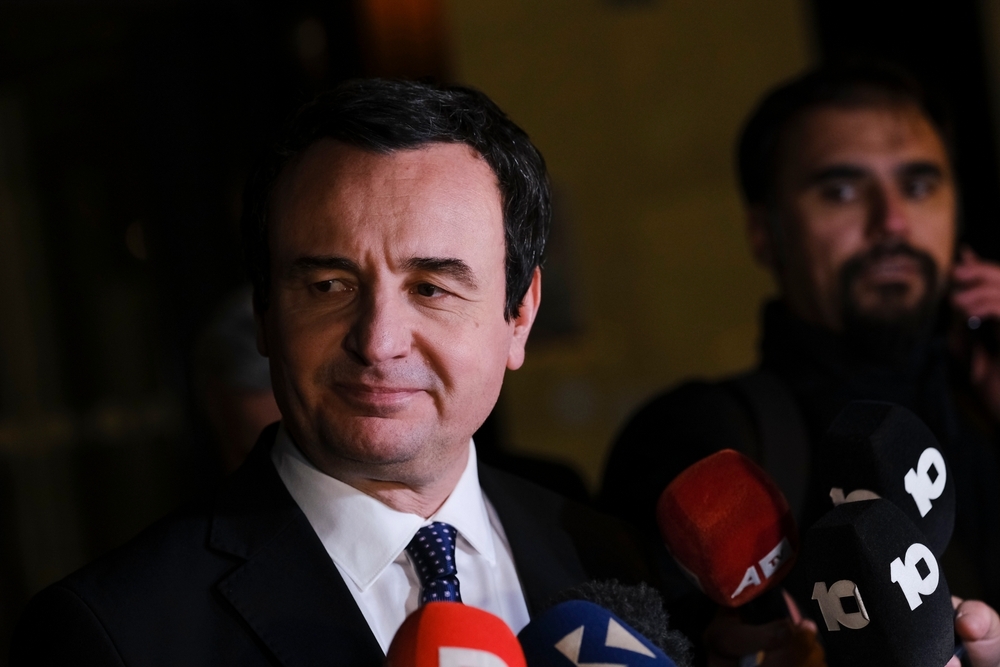Azerbaijan: when the mighty fall out of favor
Once enjoying extensive powers and considered Azerbaijan’s eminence grise, Ramiz Mehdiyev has recently fallen out of favor, accused of plotting a coup and placed under house arrest. A case in point of how power works in Azerbaijan

Azerbaijan-quando-i-potenti-cadono-in-disgrazia
Ramiz Mehdiyev - photo wikimedia CC BY 4.0
His name alone was enough to send shivers down one’s spine. And if it was pronounced in reference to members of civil society, there was even more reason to be afraid.
The man who instilled so much fear through his broad powers is Ramiz Mehdiyev, in Azerbaijan also known as “grey cardinal” or “éminence grise”. For those unfamiliar with the term, it refers to individuals who have broad decision-making powers, without necessarily holding an official position.
Mehdiyev had actually held an institutional position, as the head of the Presidential administration between 1995 and 2019, but his influence and power had extended far beyond his responsibilities. What his actual responsibilities were, we still do not know. The job description was never made public, nor were the responsibilities it entailed.
The turning point came when Mehdiyev refused to align himself with President Aliyev’s position and the latter’s plans for the future of the country.
Mehdiyev was dismissed from his role in 2019 with a presidential decree – a move hailed by the rest of the cabinet members who remained in their positions as an integral part of Aliyev-style reforms and an attempt to pave the way for new generations to enter politics.
Shortly after, Mehdiyev was assigned a less influential role – running the National Academy of Sciences. In 2022 he resigned from this position, citing age. But the decision to resign was not sudden at all, as it came at a time of criticism of Mehdiyev over his mismanagement of the academy resources for personal goals.
Yet, no one expected that, six years later, Mehdiyev’s name would appear in the news not for his usual anti-Western diatribes but for an alleged attempt to overthrow the government, treason and money laundering. He has been sentenced on four months of house arrest due to his age.
In addition, at the time of writing this article, Mehdiyev is facing losing all his titles and state awards, while the ruling Yeni Azerbaijan Party has already announced plans to expel him from its ranks. On 18 October, Mehdiyev was relieved of his duties at the Security Council of Azerbaijan, a state body.
Mehdiyev’s “unofficial” powers and wealth
Mehdiyev was among the old guard that facilitated the transition of power in 2003, from former president Heydar Aliyev to his son, Ilham Aliyev. He was also the mastermind behind the first wave of crackdown between 2013 and 2014, which led to the arrests of scores of civil society representatives, the shattering of the Azerbaijan service of Radio Liberty, and the adoption of restrictive laws on NGOs.
But in the words of Ali Karimli , the leader of the opposition Popular Front party, no matter how long you have served, “no one is untouchable”. Following Mehdiyev’s arrest, scores of government-affiliated media outlets have published articles about his wealth as if any of that was a secret.
Some former government officials went to great lengths to disassociate themselves from Mehdiyev. Among them, the member of the parliament, Zahid Oruc, who went as far as to apologise for calling Mehdiyev a “father”. He asked President Aliyev to forgive him for doing so, citing his lack of knowledge of what Mehdiyev has done, and instead addressing Aliyev as “father”.
Or the former Minister of Foreign Affairs Elmar Mammadyarov, who in an interview with Musavat TV said he had no relationship with Mehdiyev, and after he left the presidential apparatus, the two never exchanged a word. Mammadyarov’s comments were not surprising given his name was mentioned in an article that alleged Mehdiyev’s entourage, including Mammadyarov.
Another former government official, Hasan Hasanov, told the state news agency that Mehdiyev was hypocritical, an intriguer and anything but sincere during his time in power.
A coup plotter
On 16 October, the state news agency APA published an expose accusing Mehdiyev of having ties to Russia and of planning a coup with Russian backing, aiming to seize power in Azerbaijan through a transitional “State Council” under his leadership.
According to the state media, Mehdiyev’s plot was allegedly exposed in October, during a meeting between the presidents of Azerbaijan and Russia in Dushanbe, where Moscow reportedly informed Baku of Mehdiyev’s proposal and the alleged coup plan.
In another article published by APA on 18 October, Mehdiyev – who built his political career during the rule of Heydar and Ilham Aliyev – was accused of secretly cultivating a network of influence, including current and former officials, intellectuals and political figures, using intrigue, slander and manipulation to pursue his ambitions, backed by Russian interests.
Some Azerbaijani experts interviewed by Meydan TV found the coup allegations implausible. “It is hard to believe that a 87-year-old man could independently engineer a coup attempt”, said Ilham Ismayil, a security affairs expert.
Former director of now-defunct Turan News Agency, Mehman Aliyev, told Meydan TV that the charges may in part serve to purge within state structures those who were connected to Mehdiyev. “He brought many people into office […] he had access to many structures”.
According to Mehman Aliyev, the charges brought against Mehdiyev could be a pretext for internal restructuring or weakening of his network. The latter point was also mentioned by political expert Arastun Orujlu, who told Meydan TV that Mehdiyev’s case was not the end and that further detentions or prosecutions within his entourage were plausible.
Preferential bias
In addition to the charges brought against Mehdiyev, the decision to place him under house arrest have been questioned too. According to Azerbaijani criminal procedure law, the court decides on the measures based on the seriousness of charges. In the case of Mehdiyev, house arrest on charges of treason is favoritism. Scores of civil society representatives facing similar charges, including journalists and human rights defenders, were placed in pre-trial detention, and some later ended up behind bars.
Mehdiyev’s dramatic fall from grace is more than just a story of one man’s downfall. It reflects the cyclical nature of power in Azerbaijan, where loyalty is rewarded only as long as it serves the ruling elite’s interests, and where yesterday’s enforcers can quickly become today’s scapegoats.
His fate now stands as a reminder that in such systems influence is temporary, loyalty conditional and accountability selective. When cardinals fall from favor, it is rarely justice that brings them down, but politics. And even when fallen from grace, they continue to receive preferential treatment – the house arrest, cushioned by privilege and age, contrasts starkly with the fate of countless critical and independent civil society members imprisoned on bogus charges.
Mehdiyev’s story closes a chapter on Azerbaijan’s old guard – but not on the system they built. The architecture of power he helped design remains in place, only the faces at the top change.








